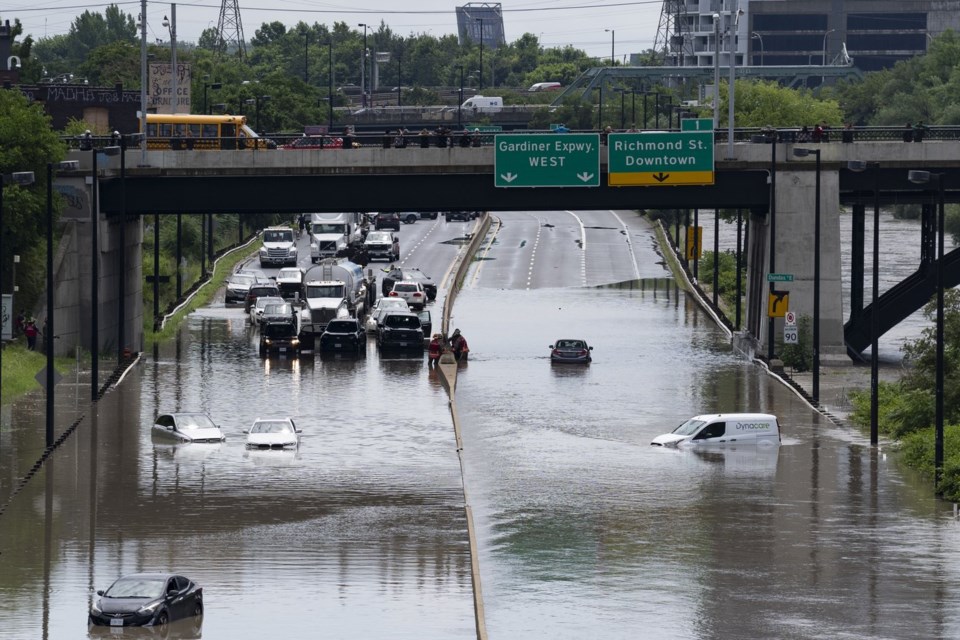TORONTO — As people in southern Ontario survey the damage done by intense flash flooding on Tuesday, the Insurance Bureau of Canada says residents need to figure out what their policies cover.
Torrential rain hit Toronto and the surrounding area on Tuesday, flooding a major highway and a key transit hub amid rainfall warnings for much of southern Ontario.
"Flooding and related sewer backup damage is costly for homeowners, businesses, and municipalities," said Amanda Dean, the IBC's vice-president for Ontario and the Atlantic, in a press release Tuesday.
Some kinds of damage will only be covered if you've purchased optional coverage on top of the usual home or vehicle policy, the bureau said.
For example, when it comes to home insurance, overland flood coverage is usually optional and covers specific kinds of damage, such as the kind from overflowing lakes, ponds or rivers.
It's a similar story for vehicles damaged by wind or water, which may be covered if you purchased optional coverage.
Water damage in a basement due to a sewer backup is only covered if you purchased specific optional coverage, the bureau said.
If there's a power interruption, the contents of your fridge and freezer may be covered, while in some circumstances, homeowners who are unable to stay in their homes because of insured damaged could be entitled to additional living expenses.
"Anyone whose property or vehicle was damaged is encouraged to contact their insurance representative as soon as they are ready to start the claims process," said Dean.
First, IBC recommends you start by assessing and documenting the damage with detailed notes, and by taking photos, once it's safe to do so. Assemble any proofs of purchase, warranties and receipts if possible.
Then, call your insurance representative or the company's claims department to report the damage.
As well, keep receipts for additional living expenses if you're displaced, said the bureau, and receipts for cleanup at your home.
Daniel Ivans, an insurance expert with Ratesdotca and a licensed insurance broker, says some Ontarians may not have adequate coverage for their area and their level of risk.
"As weather patterns become more extreme and flooding more severe, many homeowners will need to pay close attention their insurance policies to make sure they are covered for what they need," he said in a statement.
Ratesdotca said recent data on home insurance quotes showed a 68-per-cent increase in quotes adding water endorsements in June 2024, compared with the previous year.
This report by The Canadian Press was first published July 17, 2024.
The Canadian Press
